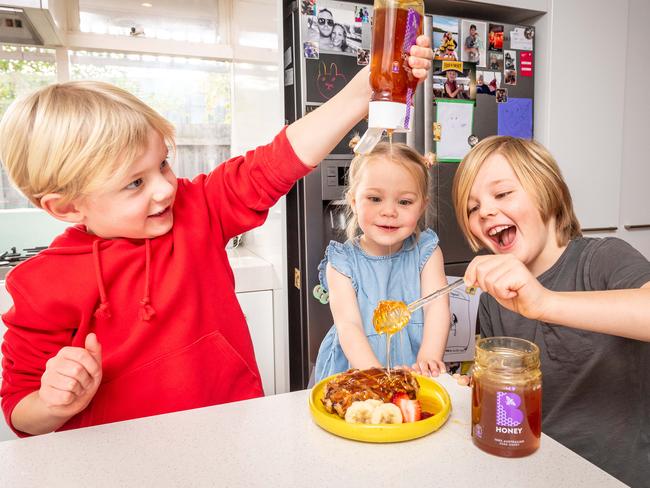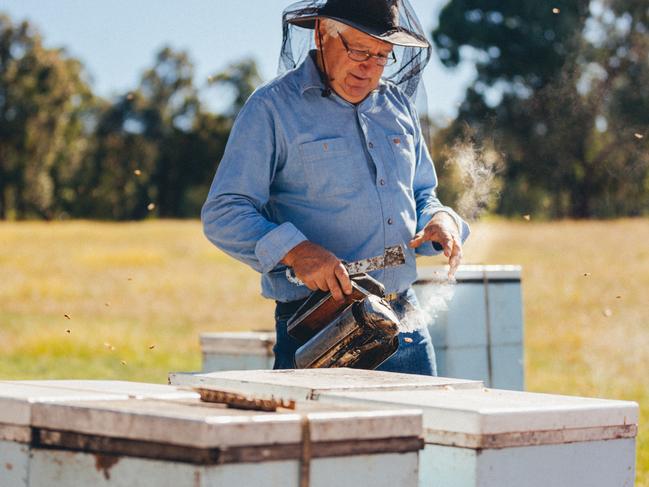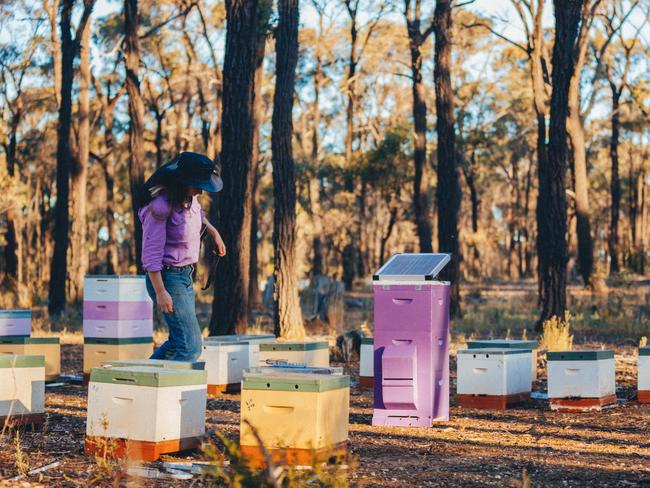Bega announces new plan to save dying bee hives as it enters Australian honey market
The collapse of bee hives around the world threatens the world’s food supply – but a sweet new plan will offer protection for Australia’s busiest and buzziest little workers.
Conservation
Don't miss out on the headlines from Conservation. Followed categories will be added to My News.
New Aussie technology and funding could halt one of the 21st century’s most troubling trends: the sudden decline in bee populations around the world.
The phenomenon, which started spawning headlines about 15 years ago, is serious because honeybees pollinate one third of the food we eat each day. The contribution they make to Australian agriculture alone has been valued at between $4-$6 billion.
Now Bega is exploring a possible solution as it pushes into the $100 million Australian honey market.
Dubbed the Purple Hive Project, the company will use 360-degree cameras and hardware developed by Melbourne-based start-up Vimana Tech.
Artificial intelligence developed by Sydney-based company Xailient will scan bee colonies for the Varroa mite, which has caused the collapse of bee populations around the world.
The tech will scan each bee in the hive, and if the mite is detected, an alert will be triggered, enabling it to be quickly quarantined.

The mite has not yet taken hold in Australia, apart from one small infestation in Townsville in 2016, but its arrival in New Zealand in the early 2000s invigorated efforts to monitor bee colonies here.
Ian Cane, a third generation beekeeper from Bairnsdale, Victoria, said the fact that the mite had been largely kept out of Australia so far was partly good surveillance and partly good luck.
“We’re the only continent on earth now where the bee populations are not subjected to this parasite,” he said.
If the mite got in, he said, “our honey production would drop significantly from where it is today and the wide range of honeybee-pollinated dependent food crops would be impacted as well”.
But he warned that Australia’s climate, particularly in the tropical north, made it extremely susceptible to infestation by the mite.
“If you move further north, bees don’t go broodless, so they keep raring baby bees all year round, and that gives the opportunitistc mite the chance to breed even more because they get more life cycles within a period. So we think it would have a devastating impact in that sense,” he said.

Adam McNamara, the executive general manager of Bega Foods, said the technology was being tested in Australia using “artificial Varoa” and in New Zealand, where they’ve got the real thing.
“The ability to detect and then ultimately manage Varoa we believe is just a massive step forward for the industry,” he said.
Bega launched its 100 per cent Australian made B honey range this week, part of a burgeoning range of products for the company that now also includes peanut butter and Vegemite.

The company had been looking at honey as a category to expand into for the past 18 to 24 months, Mr McNamara said.
Back in September 2018 the company bought an 11.2 per cent stake in honey producer Capilano, leading to speculation of a takeover, but it backed off within two months.
“Bega has a rich history in being anchored in dairy, particularly in being a cheese business, and we’ve got a vision to be the great Australian food company, so we’re always on the lookout for an opportunity to expand our business,” Mr McNamara said.
Originally published as Bega announces new plan to save dying bee hives as it enters Australian honey market

